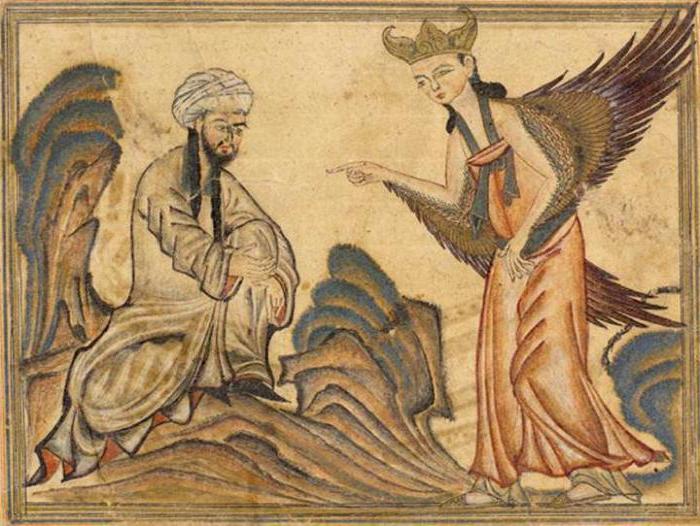Islam: the existence and role of angels in Islam
Faith in the invisible world created by Allah is a required element of faith in Islam. Among the required articles of faith are faith in Allah, His prophets, His revealed books, angels, the afterlife and divine destiny / decree. Among the creatures of the invisible world are angels, who are mentioned in the Qur'an as faithful servants of Allah. Every truly devout Muslim therefore recognizes belief in angels.
The nature of angels in Islam
In Islam, angels are believed to have been created by light, prior to the creation of humans from clay / earth. Angels are naturally obedient creatures, they worship Allah and carry out His commands. Angels are genderless and require no sleep, food or drink; they have no free choice, so it is not in their nature to disobey. The Quran says:
They do not disobey the commands of Allah they receive; they do exactly what they are commanded "(Quran 66: 6).
The role of angels
In Arabic, angels are called mala'ika, which means "to help and help". The Qur'an states that angels were created to worship Allah and carry out His commands:
Everything in the heavens and every creature on earth prostrates itself to Allah, as well as angels. They don't swell with pride. They fear their Lord above them and do whatever they are ordered to do. (Quran 16: 49-50).
Angels are involved in performing tasks in both the invisible and physical world.
Angels mentioned by name
Numerous angels are mentioned by name in the Qur'an, with a description of their responsibilities:
Jibreel (Gabriel): the angel charged with communicating the words of Allah to his prophets.
Israfeel (Raphael): he is charged with playing the trumpet to celebrate Judgment Day.
Mikail (Michael): This angel is responsible for rain and sustenance.
Munkar and Nakeer: After death, these two angels will question the souls in the grave about their faith and actions.
Malak Am-Maut (Angel of death): this character has the task of taking possession of souls after death.
Malik: He is the guardian of hell.
Ridwan: the angel who serves as guardian of heaven.
Other angels are mentioned, but not specifically by name. Some angels carry the throne of Allah, angels who act as guardians and protectors of believers and angels who record a person's good and bad deeds, among other tasks.
Angels in human form
Like invisible creatures made of light, angels do not have a specific body shape but can rather take on a variety of shapes. The Qur'an mentions that angels have wings (Quran 35: 1), but Muslims do not speculate on how exactly they are. Muslims find it blasphemous, for example, to make images of angels like cherubs sitting in the clouds.
Angels are believed to take the form of human beings when required to communicate with the human world. For example, the angel Jibreel appeared in human form to Mary, the mother of Jesus, and to the prophet Muhamad when asked questions about his faith and message.
Fallen angels
In Islam there is no concept of "fallen" angels, since it is in the nature of angels to be faithful servants of Allah. They have no free choice, and therefore no ability to disobey God. Islam believes in invisible beings who have free choice, however; often confused with "fallen" angels, they are called djinn (spirits). The most famous of the djinn is Iblis, also known as Shaytan (Satan). Muslims believe that Satan is a disobedient djinn, not a "fallen" angel.
Djinns are mortal: they are born, eat, drink, procreate and die. Unlike angels, who inhabit the celestial regions, djinn are said to coexist close to humans, although they normally remain invisible.
Angels in Islamic mysticism
In Sufism - the inner and mystical tradition of Islam - angels are believed to be divine messengers between Allah and humanity, not simply servants of Allah. Since Sufism believes that Allah and humanity can be more closely united in this life than waiting for such a meeting in Paradise, angels are seen as figures who can help communicate with Allah. Some Sufists also believe that angels are primordial souls, souls who have not yet reached earthly form, as humans have.
